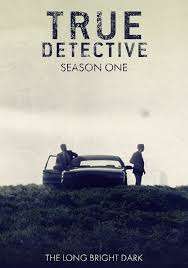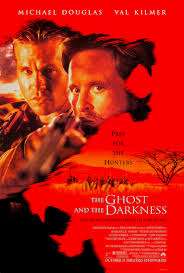Few films capture the heart and soul of a generation quite like Forrest Gump. Released in 1994 and directed by Robert Zemeckis, this Academy Award-winning film is a touching, humorous, and deeply moving journey through American history, all seen through the eyes of an unlikely hero. Starring Tom Hanks in one of his most iconic roles, Forrest Gump is a film that has resonated with audiences for decades, offering a blend of nostalgia, emotional depth, and sheer storytelling brilliance.
The Story: A Life Like No Other
At its core, Forrest Gump is the story of an innocent and kind-hearted man whose simplicity allows him to navigate life’s greatest challenges with remarkable grace. Born in Alabama with a low IQ but an earnest spirit, Forrest (Tom Hanks) is raised by his devoted mother (Sally Field), who instills in him the belief that he is no different from anyone else. From his childhood struggles with leg braces to becoming an All-American football star, Forrest’s life is nothing short of extraordinary.
Through sheer luck, unwavering kindness, and a unique outlook on life, Forrest finds himself at the center of pivotal moments in American history. He becomes a war hero in Vietnam, inadvertently inspires cultural movements, meets multiple U.S. presidents, and even starts a successful shrimp business. All the while, his heart remains with Jenny (Robin Wright), his troubled childhood friend and lifelong love. Their contrasting journeys—Forrest’s simple path of destiny versus Jenny’s turbulent search for meaning—form the emotional core of the film.
Tom Hanks: A Career-Defining Performance
Tom Hanks delivers an unforgettable performance, bringing warmth, sincerity, and authenticity to Forrest. Rather than portraying him as a caricature, Hanks gives Forrest a depth that makes him not just likable, but deeply endearing. His gentle Southern drawl, unwavering optimism, and simple wisdom create a character who feels both real and legendary.

Hanks’ performance is the backbone of the film, earning him a well-deserved Academy Award for Best Actor. His ability to balance humor with deeply emotional moments makes Forrest Gump as heartwarming as it is heartbreaking. The character’s innocence and resilience serve as a lens through which the audience experiences history, making his journey all the more powerful.
Supporting Cast: The Unsung Heroes
While Hanks steals the show, the supporting cast adds tremendous depth to the story. Robin Wright’s portrayal of Jenny is tragic yet compelling. She embodies a woman struggling with the scars of abuse, addiction, and the counterculture movement of the 1960s and 70s. Her relationship with Forrest is complex—he loves her unconditionally, but she is unable to accept that love until much later in life. Wright’s performance is heartbreaking and raw, adding a layer of realism to the film.
Gary Sinise’s portrayal of Lieutenant Dan is another standout. Initially a hardened, cynical soldier, Lieutenant Dan’s transformation from a bitter amputee to a man who finds peace and redemption is one of the film’s most powerful arcs. Sinise delivers a deeply nuanced performance, making Dan’s struggles and triumphs some of the most memorable moments in the film.
Mykelti Williamson, who plays Bubba, Forrest’s shrimp-obsessed war buddy, provides both comic relief and emotional weight. Bubba’s untimely death in Vietnam is one of the film’s most tragic moments, further emphasizing the cost of war and the loss of innocence.
The Film’s Unique Perspective on History
One of Forrest Gump’s most brilliant elements is its use of historical events. Forrest inadvertently influences and witnesses some of the most significant moments in American history, from desegregation to the Vietnam War, the Watergate scandal, and the rise of Apple Computers. Through seamless visual effects, Forrest is digitally inserted into archival footage, shaking hands with JFK, meeting Richard Nixon, and standing alongside famous cultural figures.

This clever storytelling technique makes Forrest Gump both a historical reflection and a commentary on the randomness of life. Forrest is never intentionally seeking out fame or influence; instead, history happens around him. His unintentional impact on American culture—whether it’s inspiring Elvis Presley’s dance moves or coining the phrase “Shit happens”—adds humor and charm to the film.
Themes: Simplicity, Love, and Destiny
At its heart, Forrest Gump is about the power of kindness and the beauty of simplicity. Forrest’s philosophy on life, summed up in his famous quote, “Life is like a box of chocolates; you never know what you’re gonna get,” speaks to the unpredictability of life. His childlike innocence allows him to embrace whatever comes his way, without overcomplicating things with fear or regret.
The film also explores love in its many forms—romantic, platonic, and familial. Forrest’s unwavering devotion to Jenny is both beautiful and painful, showing the depth of unconditional love. His relationship with his mother serves as another powerful example, reinforcing the idea that love, not intelligence or status, is what defines a person’s worth.
The theme of destiny versus free will is also prevalent. While Jenny believes she is trapped by her past and circumstances, Forrest believes that life is a series of random events that must simply be embraced. By the end of the film, both ideas are acknowledged—life is both a product of fate and personal choice.
The Soundtrack: A Nostalgic Journey
Music plays a crucial role in Forrest Gump, effectively capturing the essence of each era Forrest experiences. From the rock and roll of the 1950s to the psychedelic sounds of the 60s and the folk anthems of the 70s, the soundtrack serves as a time capsule. Iconic songs like “Fortunate Son” by Creedence Clearwater Revival and “Sweet Home Alabama” by Lynyrd Skynyrd transport the audience back in time, enhancing the film’s nostalgic appeal.
Criticism and Controversy
Despite its widespread acclaim, Forrest Gump has not been without criticism. Some argue that the film oversimplifies history, presenting a sanitized, conservative perspective on America’s past. Others feel that Forrest’s success, despite his lack of intelligence, sends a problematic message that effort and struggle matter less than luck and blind optimism.
Additionally, some critics have pointed out that Jenny’s character is unfairly portrayed as the film’s tragic figure, suffering while Forrest thrives. While the contrast between their lives adds emotional weight, it can also be viewed as an oversimplification of the social issues Jenny represents.

However, these criticisms do not take away from the film’s impact. Forrest Gump remains a powerful story about resilience, kindness, and love, regardless of political interpretations.
Final Verdict: A Masterpiece That Stands the Test of Time
Even after three decades, Forrest Gump remains one of cinema’s most beloved films. Its perfect blend of humor, drama, and historical reflection makes it a unique and timeless masterpiece. Tom Hanks’ legendary performance, combined with Robert Zemeckis’ visionary storytelling, creates a film that continues to resonate with audiences worldwide.
While some aspects of the story may be debated, there is no denying Forrest Gump’s emotional power and cultural impact. It is a film about life’s unpredictability, the importance of kindness, and the enduring nature of love. Whether you’re watching it for the first time or revisiting it years later, Forrest Gump is a cinematic journey worth taking.
Final Rating: 9.5/10





